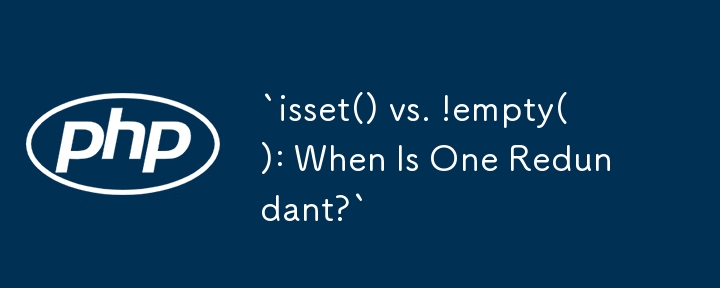

Understanding the Difference between isset() and !empty()
The use of both isset() and !empty() in the same condition, as in isset($vars[1]) AND !empty($vars[1]), is redundant. To understand why, it's essential to distinguish between these two functions:
isset()
!empty()
Therefore, the condition isset($vars[1]) AND !empty($vars[1]) is redundant because:
Shorter Alternative
To check if a variable is set and not empty, you can simply use:
!empty($vars[1])
This expression combines the functionality of both isset() and !empty() without the redundancy.
The above is the detailed content of `isset() vs. !empty(): When Is One Redundant?`. For more information, please follow other related articles on the PHP Chinese website!
 What plugin is composer?
What plugin is composer?
 Can data between Hongmeng system and Android system be interoperable?
Can data between Hongmeng system and Android system be interoperable?
 How to open nrg file
How to open nrg file
 What does Matcha Exchange do?
What does Matcha Exchange do?
 How to use the datediff function
How to use the datediff function
 How to represent negative numbers in binary
How to represent negative numbers in binary
 oncontextmenu incident
oncontextmenu incident
 What keys do arrows refer to in computers?
What keys do arrows refer to in computers?
 WeChat Moments, two dashes and one dot
WeChat Moments, two dashes and one dot




